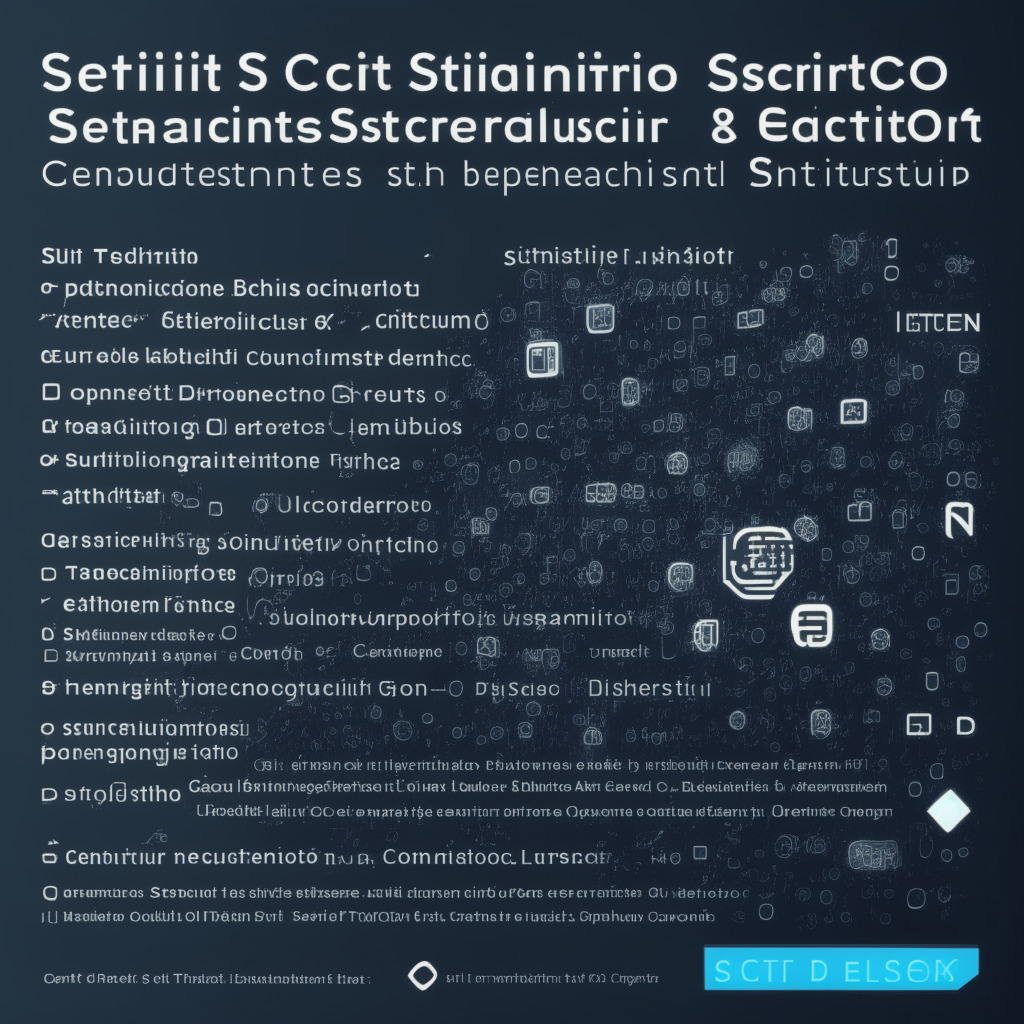Ledger introduced the “Ledger Recover” feature, aimed at future crypto users, storing encrypted seed phrases with third-party custodians. Critics argue it undermines privacy and security. The challenge lies in balancing user experience with dedication to core principles while attracting new users to blockchain and cryptocurrencies.
Search Results for: ledger
Debate Rages Over Ledger’s Seed Phrase Recovery: Security Risk or Added Protection?
The crypto community is divided over Ledger’s seed phrase recovery feature, Ledger Recover, which divides the user’s seed phrase into three encrypted fragments sent to external entities. Critics argue it undermines hardware wallets’ security principles, while supporters appreciate the added security layer.
Ledger’s Controversial Nano X Update: Recover Feature Security Debate
Ledger recently introduced the Ledger Recover feature for its Nano X device, allowing users to encrypt and distribute seed phrases among different custodians. While Ledger claims enhanced security, concerns have been raised regarding ID verification and potential exposure to identity theft. Users must weigh potential benefits against associated risks in this multi-custodian recovery process.
Crypto Seed Recovery: Ledger Recover vs Social Recovery – A Security Showdown
Ledger introduces a controversial ID-based seed phrase recovery service, raising security concerns due to the potential vulnerability of tying personal documents with crypto seed phrases. Alternative solutions like social recovery, which involve trusted guardians for wallet recovery, may better address the crypto community’s evolving needs without compromising security.
Enhancing Security with Bitski and Ledger Wallet Integration: Pros, Cons, and Conflicts
Web3 wallet Bitski has integrated with hardware wallet Ledger, enhancing security features and enabling users to securely connect their wallets to decentralized applications (dApps). The partnership supports user-friendly wallet experiences and provides a transaction simulator to help identify potential security risks. Users can switch between Ethereum and Polygon networks to purchase non-fungible tokens across both platforms.
Everledger’s Financial Struggles: A Cautionary Tale for Blockchain Supply Chain Startups
Everledger, an Australian blockchain company focusing on tracking the provenance of diamonds and goods, faces financial trouble after failing to secure new funding. Placed into voluntary administration, the firm’s insolvency persists despite backing from major investors like Tencent.
LedgerX Sale Amid FTX Bankruptcy: Impact on Crypto Exchange Trust and User Vulnerability
The bankruptcy court approved the sale of LedgerX to M7 Holdings in FTX’s Chapter 11 proceedings, signaling hope for investors seeking to recover investments. This highlights the need for vigilance and consideration of risks surrounding crypto exchanges, given potential credibility and safety issues.
Courageous Move Saves FTX Cryptocurrency Exchange from Potential Theft Debacle
“In a daring rescue, adviser Kumanan Ramanathan from Alvarez & Marsall helped prevent a major crypto robbery at FTX crypto exchange. Amidst chaos, Ramanathan utilized a Ledger Nano hardware wallet to secure remaining assets, preventing further losses and saving millions in the process.”
Navigating Cyber Threats in Crypto: FTX Hack and Safety Measures in a Bankman-Fried World
“The FTX hack saw over $400 million siphoned off from FTX’s coffers, coinciding with Sam Bankman-Fried’s high-profile trial, potentially providing cover for such illicit activities. These unexpected breaches in security have signaled the need for the evolving and relentless vigilance in our industry.”
Navigating the Waters of Real-World Asset Tokenization: Insights from Backed’s Latest Launch
“Swiss entity Backed has launched its latest product, bIB01, on the Base blockchain, offering a digital engagement tool for traditional finance enthusiasts. Backed’s tokenized securities, or bTokens, represent real-world assets like corporate bond ETFs and treasury ETFs. Despite limitations for US-based investors, this marks an intriguing merger of traditional assets with digital technology.”
Decoding The Future: Blockchain, Bitcoin, and the Fear of Centralized Digital Currencies
“Blockchain technology and cryptocurrencies are transforming financial infrastructures, providing a decentralised exchange method. Cryptocurrencies like Bitcoin could pave the way for a transparent, corruption-free global currency. However, concerns about government control, environmental impact, and the implications of Central Bank Digital Currencies (CBDCs) are also emerging.”
Achieving Finality in Blockchain: Irrevocable Transactions, Challenges and Future Prospects
“Finality in blockchain refers to the irrevocable confirmation of a transaction or block of transactions. Achieving finality has challenges like network latency and potential 51% attacks. However, improved security algorithms, consensus algorithms and advanced cryptographic techniques promise faster, more reliable confirmations, and permanence of transactions.”
Scorching Success of Scorpion Casino: Gambling Prospects in Web3 Era and Market Limits
“The expanding popularity of online gambling, particularly within the Web3 sphere, is seeing blockchain projects like Scorpion Casino gain traction. The immutability of blockchain technology offers transparency and fairness not seen in traditional gambling. Scorpion Casino, a versatile platform offering comprehensive betting opportunities, augments price growth stability with deflationary tokenomics, setting it up for a 10X value appreciation in 2023.”
Blockchain’s Future: How Backed Finance Tokenizing Government Bonds Challenges the Status Quo
“Backed Finance has launched the world’s first tokenized government bond on the Base network, marked as blB01. This innovative move provides investors with a way to monitor the value of the asset without direct exposure. However, due to unclear regulations, it remains inaccessible to U.S. investors.”
Komainu’s Milestone Regulatory Approval: A Victory for Progress or Threat to Cryptocurrency Essence?
Komainu, a venture co-founded by CoinShares, Ledger, and Japanese Nomura, has gained substantial regulatory approval in the U.K. as a custodian wallet provider. While this development brings crypto custody services to the U.K. and contributes to the country’s fintech landscape, it also raises concerns about individual privacy rights and the balance between industry regulation and the decentralized nature of cryptocurrencies.
EU’s New Crypto Regulatory Outlook: Balancing Sustainability, Transparency, and Market Growth
ESMA’s latest consultation paper on Markets in Crypto Asset regulation aims at integrating the crypto market by 2024, focusing on sustainability, consistency in crypto services, transparency in pre, and post-trade data, record-keeping by CASPs and accessible white papers. The initiative stresses environmental sustainability, encourages business continuity policies, and emphasizes real-time transparency in transactions.
European Crypto Regulation: Balancing Sustainability, Transparency and Freedom
The European Securities and Markets Authority (ESMA) has published its second consultation paper on cryptocurrency regulations, focusing on sustainable indicators for distributed ledgers, disclosure of insider information, technicalities within white papers, transparency measures and record-keeping for Crypto asset service providers. ESMA’s move aims to encourage a more sustainable, transparent, and accountable crypto-market.
Unveiling the Dark Side of Central Bank Digital Currencies: Is the Trade-off Worth It?
“CBDCs, digital currencies issued by central banks, could pose data privacy threats due to their non-anonymous nature and extensive record of financial transactions. They also might alter our legal relationship with money, potentially leading to spending restrictions, transfer limits, or transaction blocks.”
Layoffs in Crypto Space Amid Market Slump: Temporary Ripple or a Diagnosing Tremor?
“Crypto hardware wallet manufacturer, Ledger, announced a 12% workforce retrenchment due to macroeconomic challenges affecting revenue. Despite a thriving crypto market, a global inflation spike, interest rate increases, and catastrophic events like the Terra ecosystem collapse have caused a significant downturn in the crypto industry, resulting in numerous layoffs.”
South Korea’s Central Bank Tests Ground for Potential Wholesale CBDC Implementation: Progress or Peril?
South Korea’s central bank is collaborating with the Bank for International Settlements for a test run on wholesale central bank digital currencies (CBDCs) seeking to assess the feasibility of setting South Korea’s future monetary framework based on CBDCs. The test project focuses on the CBDC’s efficiency as a settlement asset and its programmability potential.
Revolutionizing Scientific Funding: The Emergence of DAOs and Blockchain Technology
“Decentralized Autonomous Organizations (DAOs), utilizing blockchain technology, are advocated by Nature science journal as transformative in securing funds for underfunded research fields. By disrupting traditional funding models, DAOs democratize funding procedures, potentially realign resources from only prestigious institutions to more varied sectors.”
Blockchain Finance: The $79.3B Market of the Future – Growth Potential and Challenges Ahead
“Blockchain finance is predicted to become a $79.3B market by 2032, offering improved methods for trading, payments, settlements, and asset management. Stimulated by disruptions during the COVID-19 pandemic, blockchain’s potential for lowering operational costs is driving industry growth.”
Sygnum Singapore’s Digital Breakthrough: Unpacking the Pros and Cons of Singapore’s Sieve-Like Crypto Compliance
Sygnum Singapore, a subsidiary of the Swiss-based crypto bank, has secured its Major Payment Institution License from the Monetary Authority of Singapore. The license enables Sygnum to provide regulated digital payment token brokerage services, breaking previous transaction limits, and paving the way for potential expansion into Asia-Pacific markets.
The Great Pivot: How Bitcoin Went From Black Sheep to Golden Goose
“The SEC’s categorization of Bitcoin as a utility sparked a shift in its narrative, influencing large corporates and changing media portrayal. Despite obstacles like US regulation and offline storage controversies, optimism underlies the crypto community with companies like Ledger seeking innovative solutions.”
Unveiling the Crypto Crisis: The Rising Wave of Blockchain Cybersecurity Breaches in Q3 2023
The alarming increase in cybersecurity breaches in the blockchain resulted in a loss of over $685 million in the third quarter of 2023. This number rose by 59.9% from the previous quarter’s losses. With notable incidents spanning across 49 protocols and projects, these cybercrimes misappropriated almost $662 million. The vulnerability of the DeFi sub-sector has been specifically highlighted, as it lost a massive $2.8 billion in 2022.
Unfolding the Blockchain Revolution: An Incorruptible Lens to Future Markets and Knowledge Sharing
“Blockchain technology, evidenced by digital currencies, is transforming our understanding of markets and data security. However, its unregulated nature and privacy implications raise concerns. Despite this, blockchain’s potential to improve market transparency and information integrity is undeniable.”
Understanding the Steady Surge and Potential Challenges in Blockchain Mining and Tokenization
“In the evolving world of blockchain, Bitfarms, a leading Bitcoin miner, intensified its mining operations in September, producing over 400 bitcoins. However, the company’s mining rate decreased compared to the previous year, illustrating a challenging mining environment. Meanwhile, UBS bank launched a pilot of a tokenized fund, emphasizing further advancements in blockchain and cryptocurrency space.”
Ethereum’s Real-World Ascent: UBS Tokenization and What It Means for Blockchain Future
“UBS bank launches a live pilot of a tokenized money market fund on Ethereum, aiming to democratize market liquidity. The project brings together traditional financial institutions and fintech providers. However, tokenization faces challenges such as asset valuation transparency and blockchain complexity.”
Exploring Tokenization: The Future of Asset Management or a Risky Venture?
“Tokenization, the process of translating ownership rights of assets into digital tokens on a blockchain, is revolutionizing traditional finance by streamlining payment mechanisms, creating programmable smart contracts, and ensuring secure, transparent ledgers. This conversion into non-fungible tokens (NFTs) promises simplified, optimized payments for artists, content creators, and sports personalities.”
Harnessing the Power of Tokenization: Future of Asset Management and The Uncertainties Ahead
“Tokenization, referring to the conversion of asset ownership rights into digital tokens on a blockchain, is revolutionizing securitization according to Jenny Johnson, CEO of Franklin Templeton. It opens up new possibilities for alternative investment vehicles with its incorporation of a payment mechanism, programmable smart contracts, and a source of truth embedded in a decentralized ledger.”
Google Cloud’s Role as a Polygon Validator: Implications and Confrontations in Decentralization
Google Cloud’s partnership with Polygon, an Ethereum Layer 2 protocol, strengthens the growing trust in blockchain’s role in our digital future. Google’s entry as a validator bolsters security, and implicates its infrastructure employed by high-traffic platforms, as part of web3 collaborations.
Revolutionizing Crypto Trading: A Call for Enhanced Regulation and Standards in the Crypto-sphere
The World Federation of Exchanges (WFE) suggests stronger regulation to boost the credibility and safety of crypto-asset trading platforms (CTPs). However, concerns linger as practices like CTPs trading against their customers exist. Interestingly, the WFE is inclined towards embedding transparency through regulation, hence flagging the need for standards and regulation in the crypto markets.































